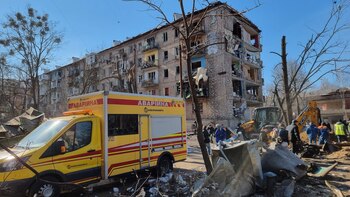
Kiev, again. Here, more and more, we must say Kyiv, the way Ukrainians use to distinguish themselves from “the orcs”, as they call the Russians since the invasion began. The capital resists and is increasingly clinging to the idea that they will continue to live the life they had before the war, even though more than a million people have already evacuated and every day are fatal because of the Russian attacks.
The last one happened this Friday at eight in the morning. A missile hit the central park of a building complex in the Podilsky district. There was no nearby military facility or government building, instead, a kindergarten, a school, and residential buildings.
Anti-aircraft warnings sounded, but this time the defenses were unable to intercept the missile. At around 08:04 Ukraine time, the Emergency Service of Poryatunka received a call for help. A fire was burning everything after the explosion. The firefighters arrived soon. Floors 1, 2 and 3 of the buildings were on fire. About 50 people began to fight it. Of the residents who were in the building, 98 were evacuated. At the close of this note, authorities reported 19 injuries and one person died. Soon after, already standing in the area, it seems impossible to believe in these numbers: the destruction is massive.
The block was devastated, smoky, full of rubble and scrap metal. T he image is increasingly seen in the capital, which was solid until a week ago, today begins to stagger. Not the attitude of the people, who see the destruction and no longer flee, they organize themselves around the disaster to move debris, clean up the area, help the affected neighbors. Often, under the sound of other explosions, which continue to sound. The promise that a bomb won't land twice in the same place seems to give them security.
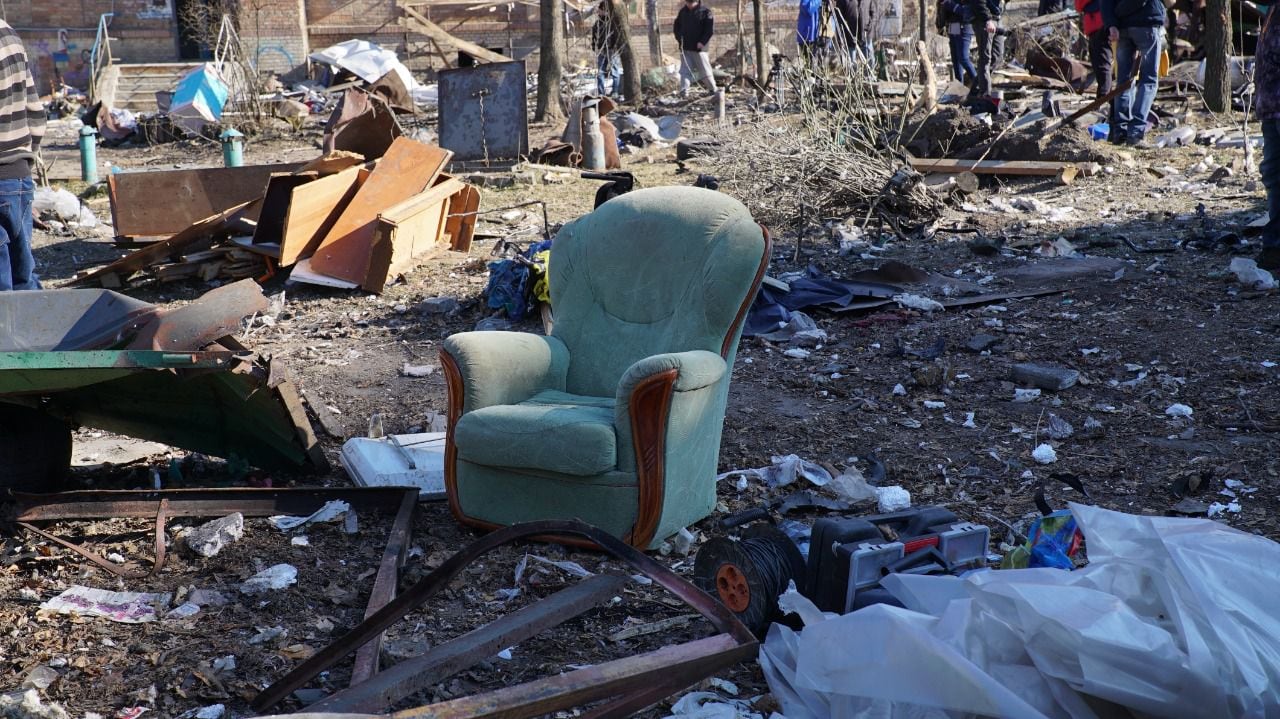
Four days ago, the remains of an intercepted missile hit the neighborhood of Heroiv Dnepra. Larissa, a 43-year-old Kievite, lives there. It was March 14 at five in the morning. She was sleeping when she suddenly heard a rumble and a sudden wave of wind knocked her out of bed. He later learned that it was the shock wave. Then he toured the neighborhood and saw the destruction. However, the first thing he did was go on the internet. “I grabbed my phone and started looking for information to see what was going on, but there was nothing yet because it was too soon. So when the curfew ended, at seven in the morning, I got dressed and went out to see what had happened,” he says.
Someone else died that day. So many other injuries. Larissa, who since the beginning of the invasion has dedicated herself to communicating what is happening, took a photo with the building after the flames.
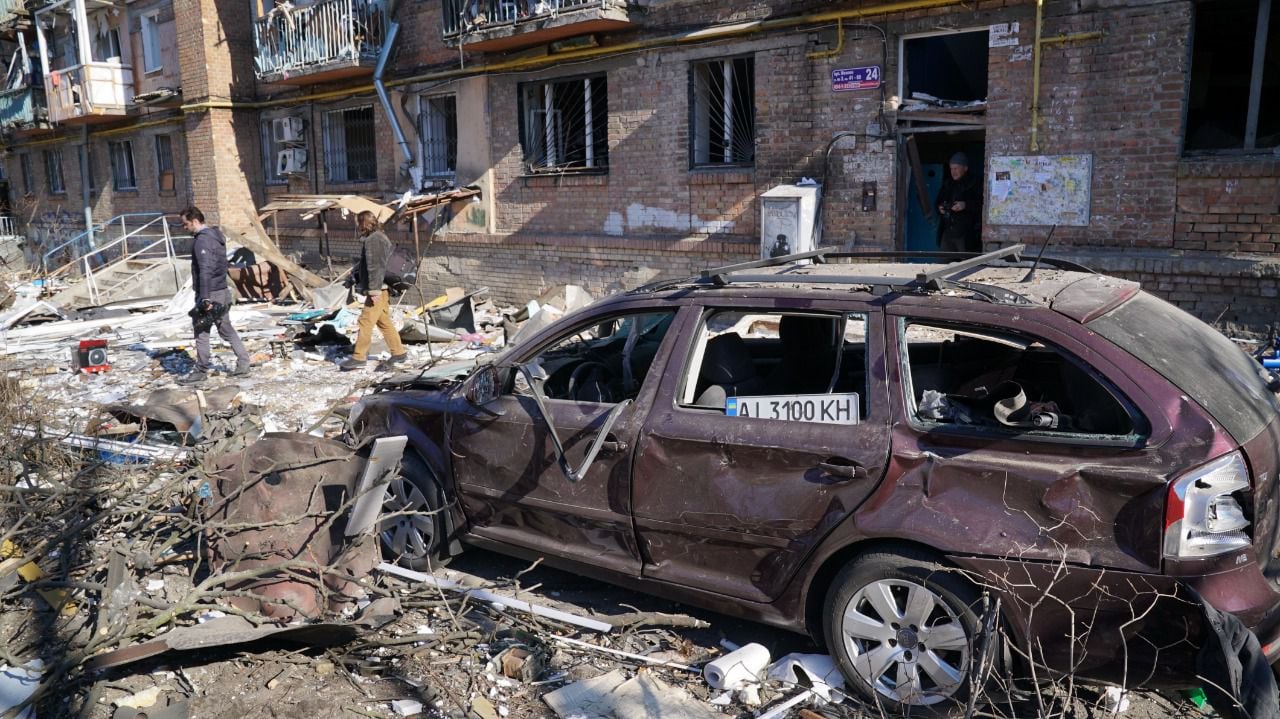
The devastation in Kiev could be much worse if it weren't for its strong air defenses. Every time the Russians launch an attack, the Ukrainians try to intercept it. Even so, damage is caused by the rain of fire and iron that occurs when a missile is destroyed in the sky. Otherwise, the attacks could be far more lethal.
We see it now: an entire building was left without a front, as if the skin had been torn off from a sleeping man's face. You can see the bones of the apartments, the tables probably served with breakfast minutes before 8, when the attack fell, the libraries turned over, the broken woods that no longer distinguish what they were, whether bed or table or chair. You can see on the floor of the square just a destroyed chair, it is small, as a child. You see a bicycle burned, broken in half, several cars painted black by fire, you can feel the smell of the sheet metal extinguished a few minutes ago.
The sounds don't go out. Not those of attacks, which are sporadic, but those of glass and metal in motion. From the balcony of a fourth floor, a neighbor throws things down, scraps of his house, debris he doesn't want on the balcony. Another one looks up. It no longer has windows or doors, it is like a cliff from the living room. Another, an older woman, walks out the door into the street. He carries two bags, the only thing he takes. Another person comes in, I don't know whether to stay or look for something.
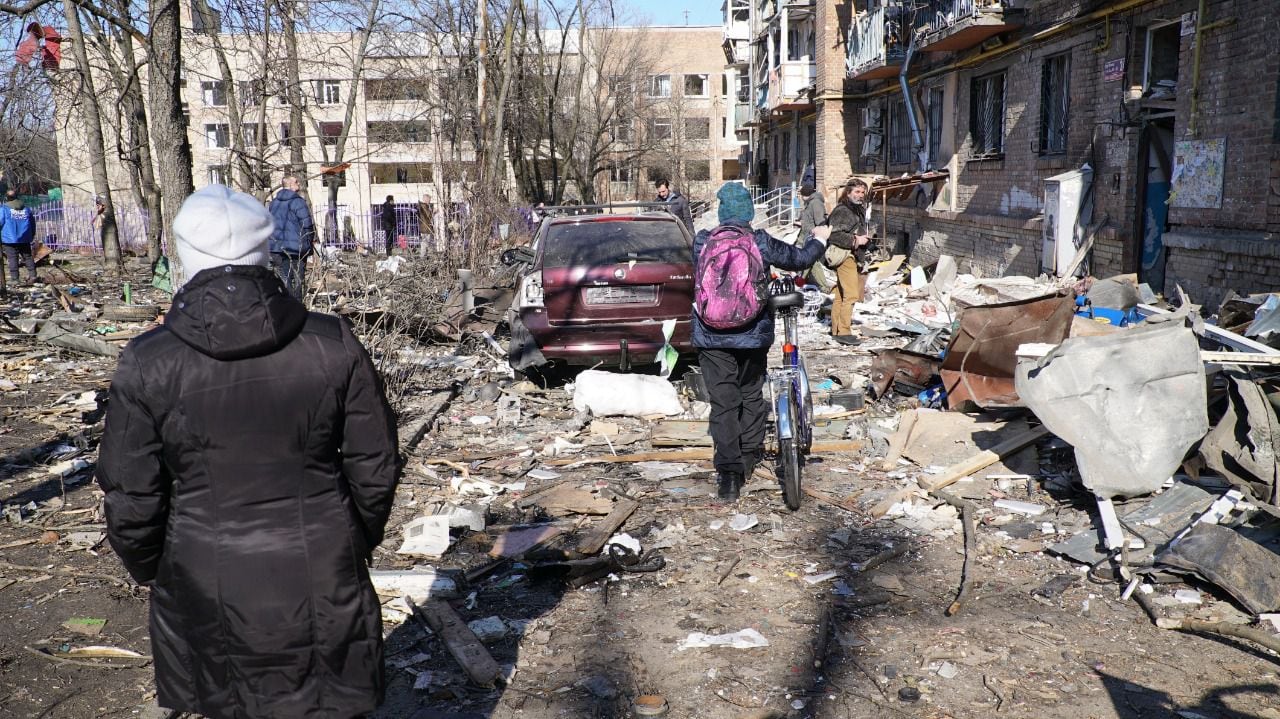
Anastasia is a neighbor of another neighborhood that was also bombed a few days ago. When I was a child, I lived next to the building that was destroyed. “I spent my childhood here, it's very hard to see this like this,” he says. He is 19 years old and studies languages. His brother, Constantine, is 13. He says that some of his friends left the country and others didn't, but he still can't see them. He is afraid, he says, because I ask him, but the answer is not long. “Yes, I'm afraid.” Maybe he stays, “because it's my city.” It is what everyone says, as if they dream that one day Putin reads one of the interviews and finally understands it.
The ones that are experiencing the worst at the moment are still the districts bordering Kiev. Bucha, Irpin... cities attached to the capital where the only possible way out is evacuation. They no longer have electricity, gas, and those who remain live in shelters under the permanent sound of artillery and bombings.
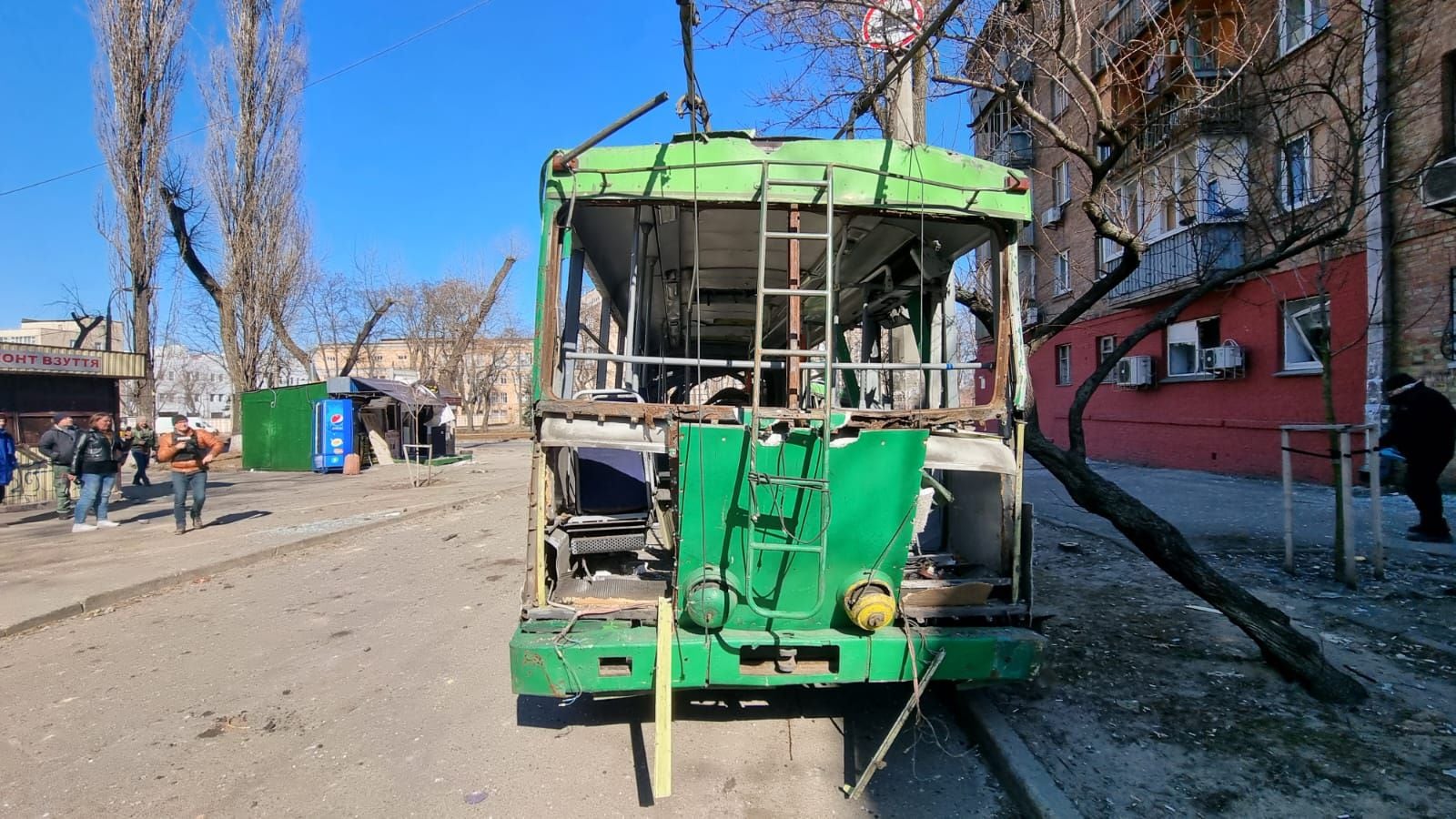
“In the cities around Kiev, the occupiers systematically rape and kill the local population,” Oleksiy Arestovych, advisor to President Zelenski's office, told the press round yesterday.
“Violence against the local population is systematically observed around Kiev. If they used to be isolated cases, now the situation has worsened. The Russian army is deliberately destroying the Ukrainian population. This is genocide. There are hundreds of such cases, not even dozens,” he said.
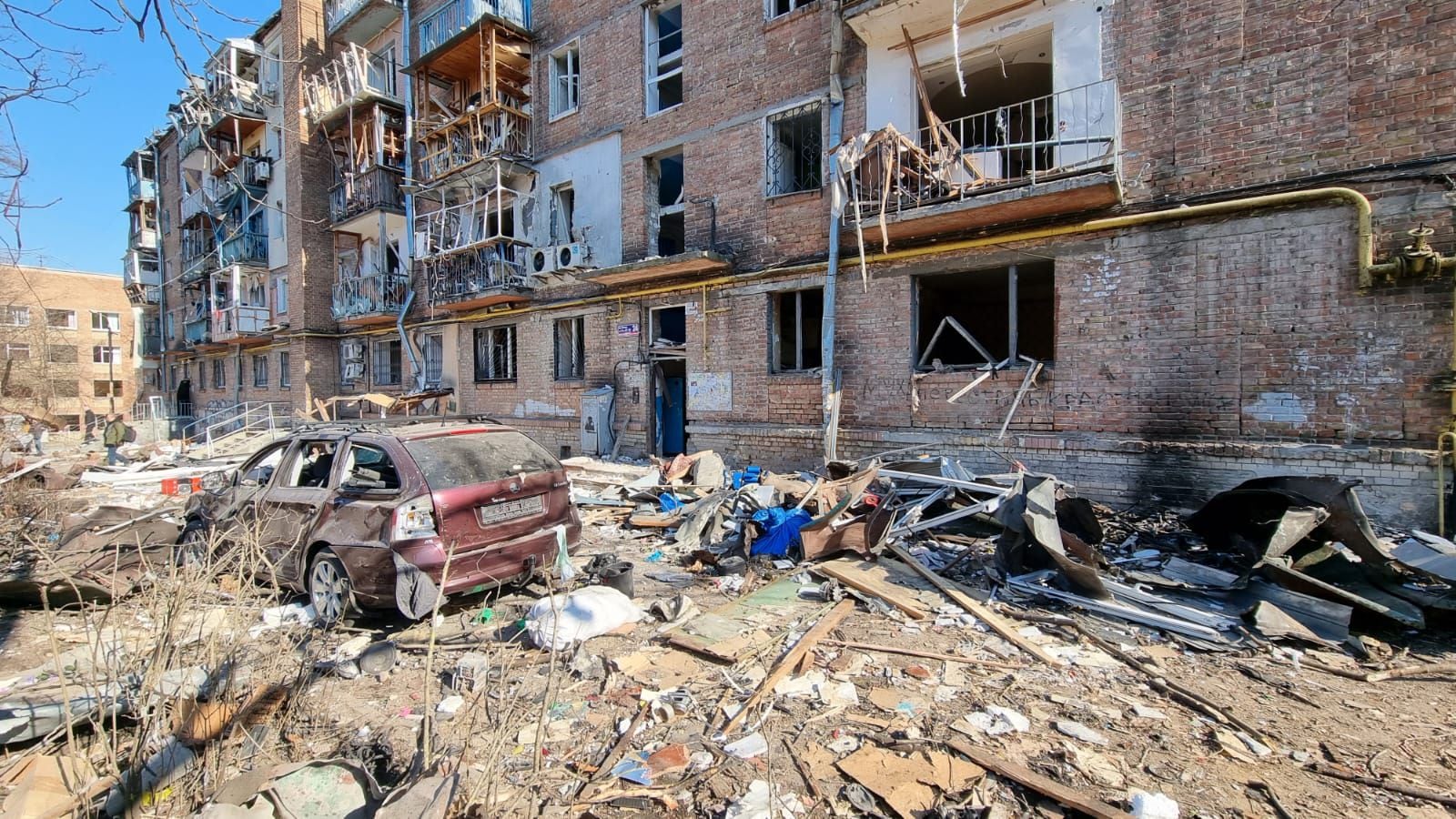
During the evacuation of people from these districts, the Russians continue to fire at columns of the Ukrainian army, making these corridors extremely dangerous places.
According to the Chief of the General Directorate of the National Police of the Kiev Region, Andriy Nebytov, all rescue operations in the region were under enemy fire.
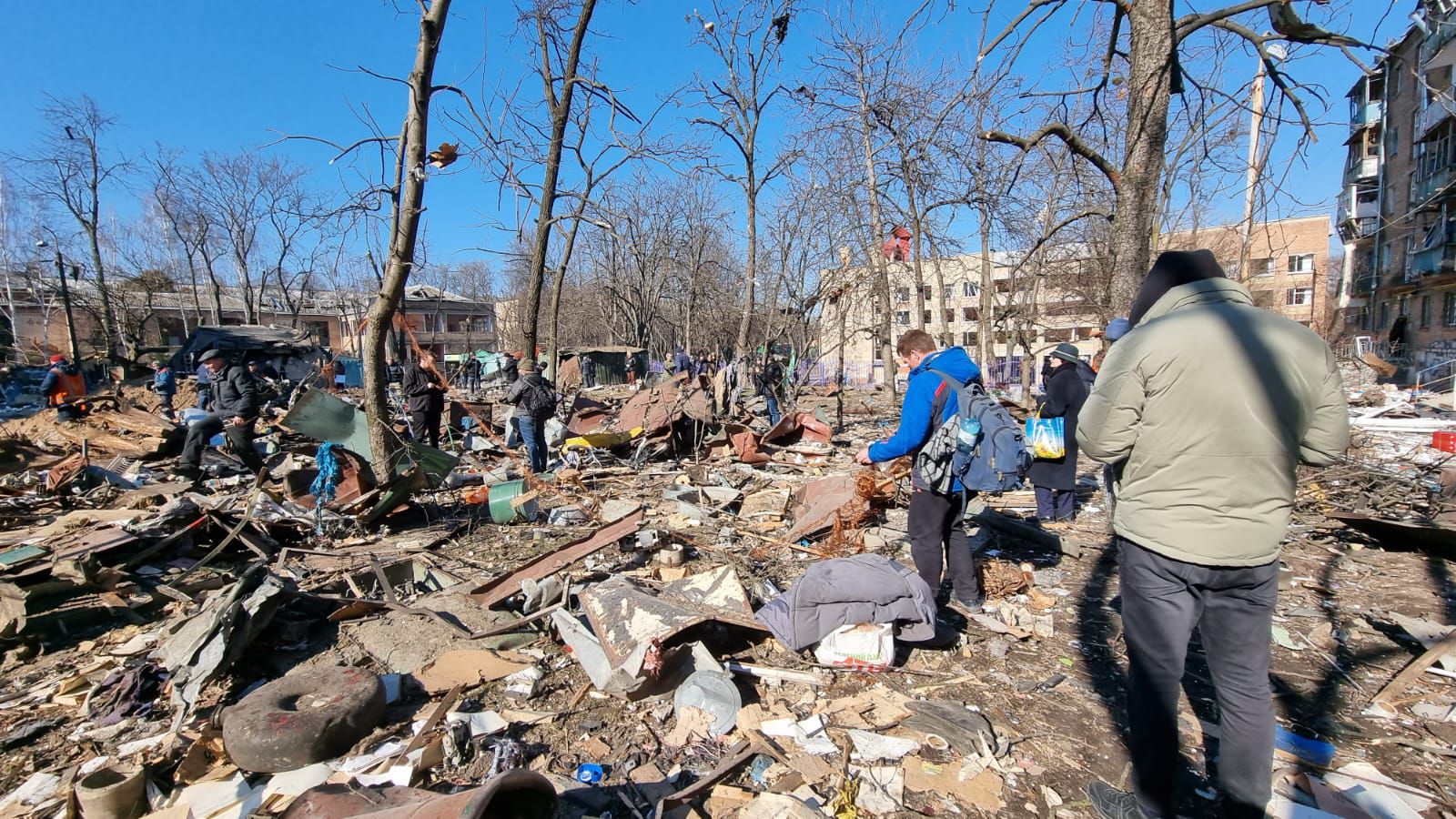
“In the temporarily occupied regions of Kiev there are a large number of hospitals, schools and kindergartens. To save the people from the hell of war, all public authorities tried to evacuate as many citizens as possible. But the Russian occupiers did not provide such an opportunity. During the evacuation of people in the Bucha district, the occupants fired tanks at the evacuation columns. One policeman was killed and another was injured. The same situation has developed in Irpin,” he explained.
According to Andriy Nebytov, the streets of Irpin and Bucha “are covered with corpses”. As in Mariupol, in the south of the country, we will have to wait until the attack stops to know the true extent of the damage.
KEEP READING:
Últimas Noticias
Debanhi Escobar: they secured the motel where she was found lifeless in a cistern

The oldest person in the world died at the age of 119

Macabre find in CDMX: they left a body bagged and tied in a taxi
The eagles of America will face Manchester City in a duel of legends. Here are the details

Why is it good to bring dogs out to know the world when they are puppies



